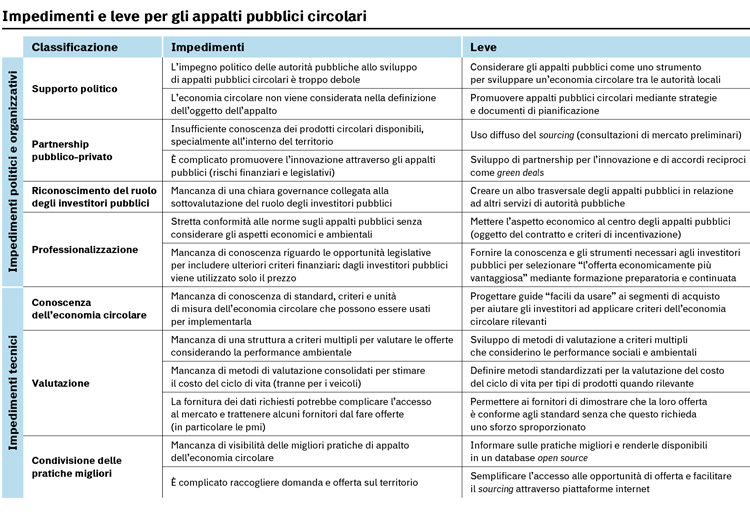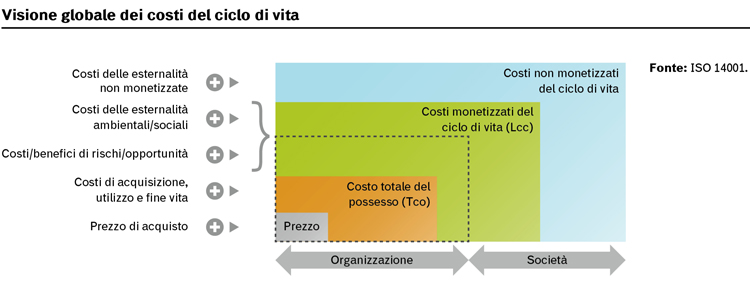 edited by Institut de l’économie circulaire, Parigi www.institut-economie-circulaire.fr
edited by Institut de l’économie circulaire, Parigi www.institut-economie-circulaire.fr
Public procurement is considered as a top policy lever as it represents a significant part of GDP (about 14% in Europe). The French national law on energy transition is stating that public procurement “must serve” the circular economy transition. Moreover, recent regulatory changes on public procurement at the European level encourage public purchasers to include social and environmental performance criteria. However, in practice, most public purchasers do not consider the circular economy because of the lack of political will and key operational tools.
A recent study from the Club of Rome estimates that the circular economy in France could create about 500,000 jobs and cut by a third greenhouse gas emissions. Transition towards the circular economy is now directly targeted through the national law on energy transition. Public procurement is considered as an important lever to implement the circular economy.
The Directive 2014/24/EU on public procurement, which was transposed in French law in 2016, allow purchasers to include the circular economy both through defining the subject-matter of the procurement by including technical specifications, and through award criteria. Single price criteria use should now be limited to strictly equivalent products, while multicriteria assessment and life-cycle costing shall be used for most of public procurement award processes.
Thus, the new regulatory framework on public procurement encourage purchasers to change their practice but some non-regulatory barriers are still preventing most of them to include extra-financial criteria. The Institut de l’économie circulaire is currently leading a workshop in cooperation with the national observatory on sustainable purchasing, to identify these barriers and provide appropriate levers. The table below summarises barriers and levers for circular public procurement.
Best practices sharing is essential to duplicate existing initiatives. Cases of the city of Paris and SNCF (National society of French railways) are quickly presented below.
City of Paris – Sustainable public procurement Parisian strategy
Every French public authority whose total purchasing exceeds 100 million euros must produce a sustainable procurement plan. The city of Paris was the first local authority to adopt such a plan in 2016. This Parisian scheme is promoting circular economy through its three main pillars:
Stimulate ecological transition:
- Define circular economy criteria, especially for construction sector
- Develop reuse and combat planned obsolescence
- Promote biosourced products, product service systems and the collaborative economy
Build a city based on solidarity:
- 20% of procurements must contain a clause of social integration focusing on circular economy jobs
- Promote alimentary short-circuits and combat food waste
Paris as an exemplar city:
- Develop sourcing through a dedicated platform
- Set a procurement planning commission to ensure policy continuity and coherence on this subject.
Circular economy within the procurement policy of SNCF
SNCF included circular economy in their procurement policy to reduce their costs by optimising the use of resources. To achieve it, SNCF identified four different ways:
- Opt for product service system rather than owning;
- Work on eco-design of products;
- Develop new recovery streams for waste and co-products;
- Favour short loops as internal reuse.
Examples of actions developed by SNCF through procurement:
- End-of-life public works machines of SNCF are now sold for reuse;
- Eco-design of rubber-metallic suspension parts allows for remanufacturing;
- Workers uniforms are collected in partnership with other companies to develop a viable recovery chain.




